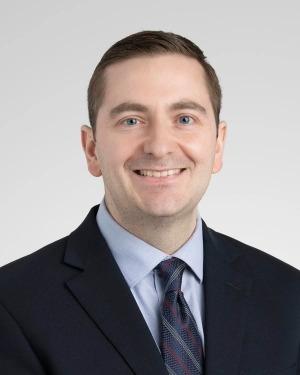Research News
09/04/2025
This surgeon is analyzing the role of social media in healthcare to communicate better with patients
Dr. Roxbury studies social media in healthcare, how it shapes patient views, uncovers real concerns and supports better clinical decisions.

As patients increasingly turn to social media for healthcare advice, Christopher Roxbury, MD, MBA, is researching ways to use their questions and feedback to improve his work as a rhinologist and endoscopic skull base surgeon.
Dr. Roxbury is studying how platforms like TikTok and Reddit are influencing public health, for better and for worse. His work demonstrates both the risks of misinformation and the untapped potential of these platforms to help physicians better understand patient experiences, identify gaps in care and improve outcomes for individuals with rare or understudied conditions.
“I expected there’d be misinformation – but not that much”
As an ear, nose and throat (ENT) specialist, Dr. Roxbury understands why people with sinusitis might turn to social media first. Getting specialty referrals can be difficult, and ENT availability can mean months-long wait times before an appointment.
“For something milder, like a cold that won’t go away, my patients have told me that they think they may be able to figure it out in the meantime by looking online,” he says. “I felt like I had a duty to know what they were seeing there, not just to make sure it was accurate, but also to make sure I wasn’t dismissing anything out of hand.”
Dr. Roxbury and his team analyzed all the TikTok videos they could find with tags related to pediatric ear infections and sinusitis, two common conditions in his field. They ended up with several hundred videos in each category, which had collectively been viewed and shared hundreds of millions of times. What they found was startling: more than half of the videos contained misinformation.
Some videos advertised supplements that hadn’t been tested in clinical trials yet but weren’t harmful. Other videos suggested home remedies that made symptoms worse, like a “garlic challenge” that aims to relieve sinusitis by putting garlic cloves in your nostrils but instead worsens inflammation.
“I expected there’d be misinformation – but not that much,” Dr. Roxbury says, noting that while TikToks posted by healthcare professionals were far more accurate, they still steered patients wrong 15% of the time. “There’s not really a substitute for asking your doctor, but if patients are going to social media first, we need to make sure what they find there doesn’t steer them in the wrong direction.”
Online communities reveal what patients wish their doctors had said
Dr. Roxbury has also performed studies evaluating posts from Reddit, where he analyzed posts in disease-specific subforums to understand patient sentiments and post-surgical outcomes. For some conditions like prolactinoma or Cushing’s disease, individual providers may not see enough cases to draw meaningful conclusions about what most patients feel about their care, especially when there’s so much to discuss in a short visit, he says.
“Reddit offers a broader, more nuanced view of how patients experience their care without conducting expensive national surveys. It may provide us insight into what our patients think works, what they think doesn’t, and what else they are worried about.”
By combining sentiment analysis with thematic coding, Dr. Roxbury and his team were able to extract insights around emotional recovery, access to care and patient expectations that he may have otherwise missed.
“We must be evidence-based when treating patients, but where evidence is lacking or uncertain, shared decision making and individualized treatment plans are essential,” he says. “Sometimes it's easy to get caught up in focusing on diagnoses and treatment plans, while forgetting social factors my patients worry about like their financial burdens or mental health. There isn't always enough time for a patient to bring those worries up on their own, so studies like this can help guide me in bringing up these factors myself."
Dr. Roxbury hopes his work will serve as preliminary evidence to help push more healthcare professionals, institutions and professional societies to be more visible in and engaged with online communities.
“The intersection of healthcare and social media isn’t just a research interest, it’s how public health is evolving,” he says. “People aren’t going to stop using social media to answer their healthcare questions. We need to meet them there to make sure they have better information they can use, and we also need to use the information they provide to improve how we deliver care.”
Featured Experts
News Category
Related News
Want To Support Ground-Breaking Research at Cleveland Clinic?
Discover how you can help Cleveland Clinic save lives and continue to lead the transformation of healthcare.
Give to Cleveland Clinic